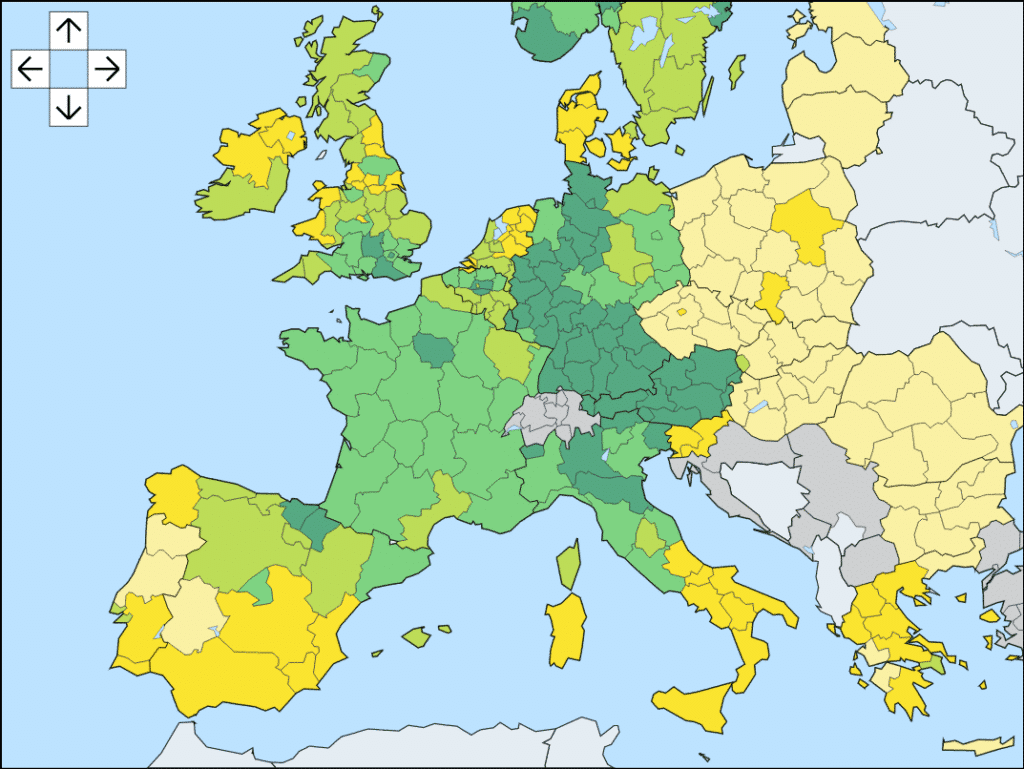Matthew C. Klein is a brilliant, well-educated young man from Chicago who has the huge opportunity, and responsibility, to be able to write his blog for The Financial Times. We’re sure that Mr. Klein, who graduated from Yale, has a much brighter future than yours truly, who only graduated from the University of the Basque Country.
But those of use who studied Information Science have a principle engraved in our brains that the author of the FT Alphaville blog doesn’t seem to have embraced yet: a specific claim should only be made when one is certain it is correct. It’s true that more generalized claims can, too often, end up diluted in the fog of imprecision; nevertheless, a claim about a specific thing, something that is measurable, must be made discerningly.
The responsibility for writing for a media outlet with the reach and prestige of the Financial Times, even if only in the blog section, must necessarily make one multiply the attention paid to that principle. However, it would seem that in this case, the author is more interested in showing off his wit and brilliance than respecting his readers, who should read information that is well-sourced, verifiable, and true.
We’re not going to get into the “insinuations of questionable taste” hidden behind the concepts such as the one regarding the idea that the development of different territories that currently make up the Kingdom of Spain depends on the time it took them to be “reconquered” (just the use of the term “Reconquista” deserves a reprimand of historical proportions). The same goes for relating the idea that the rich-poor division in Italy is due to whether it was at one time part of the Holy Roman Empire or the Kingdom of Sicily. The truth is that the use of clichés like “elemental education” are quite unattractive to anyone who knows a bit of history.
We’re instead going to get to our point, which regards the Basque territories south of the Pyrenees. Our author is very interested in the economic development and gross regional product of the Basque Autonomous Community and the Chartered Community of Navarre. And we’re not surprised. For a person who’s taking his first look at the structure of regional economic development in Europe, these variations are striking, at least if that person had never looked at a similar map of the US. That would be clearer, as it would show off the influence of the rural and industrial areas when explaining those differences.
But he then overstepped interest and jumped straight to conclusions. So he starts with claims that try to turn his scant knowledge on the Basque reality into truths worthy of being shared.
No wonder regionalist parties in Basque Country, Navarre, Catalunya, and northern Italy have become so popular in recent years.
We’re not going to get into Italy or Catalonia, not least because we’re not knowledgeable enough to do so. But we do know a thing or two about the Basque Country and Navarre. To say that the Basque nationalist parties are “regionalist” is the first mistake. They do not defend a region, but rather a nation. Indeed, it was already much more a nation than many of those which appeared in the New World starting in the 18th century. But that mistake would be forgivable if it didn’t relate that national feeling with the economic situation. We understand that for some, it might be comprehensible that a segregationist movement might be born of the opposition to a tax on tea. But Catalonia and the Basque Country have a long history demanding the recovery of their sovereignty; too long to be related to a given economic situation.
But even that wouldn’t have been enough to inspire this entry. After all, we’re well accustomed to that type of simplification that reflects on the one defining better than the one defined. The problem is that Mr. Klein went one step further, and started trying to describe the fiscal balance of the two autonomous communities as regards the Common Regime Territory in the Kingdom of Spain. And he did so by presenting the crudest lie to come out of the “Spanish unionist cave” as a truth:
The Basque Country and Navarre, which are the two regions in Spain with the highest average disposable income, both have fiscal autonomy. One interesting consequence is that they actually take in more from the rest of Spain than they contribute, despite being wealthier to start with.
This is, quite simply, a lie. The Economic Agreements that govern the financial relationships between the two communities and the Government of the Kingdom of Spain only allows for the flow of money in one direction. The “Cupo“, which is the amount the two communities must pay Spain, is ALWAYS positive. To state that they “take more from Spain than they contribute” is not just a mistake, it is a lie, and a malicious one at that.
We’re not going to spend our time explaining to our very well-educated and brilliant Mr. Klein, important enough to get to write for he Financial Times, what the Economic Agreement is, or how there are five revenue agencies at the same level, and five tax systems. We’re not going to explain to him that we Basques have always, always, paid our taxes to Basque revenue agencies, except for (some of) the Franco dictatorship years. We’re not going to explain to him what “residues of sovereignty” means. We’re not going to explain what “unilateral responsibility” is and how it affects Basque institutions and not Spanish ones. We’re not going to explain any of that to him.
We’re going to instead share with him an invitation, an offer, and a recommendation.
The invitation is to read about a topic so as to understand it. We invite him to actually study what the Economic Agreements (Concierto Económico for the Autonomous Community of the Basque Country and Convenio Económico for the Chartered Community of Navarre) are. He can do so here, in English: Economic Agreement.
The offer is simple. If he’s interested, we can put him in touch with people who can explain it to him first-hand. We’d be delighted to help him step out of the darkness of ignorance.
The recommendation is one of a book written back in the 18th century by a completely “unsuspicious” author. We’re referring to the book the second president of the US, John Adams, wrote, titled DEFENCE OF THE CONSTITUTIONS OF THE UNITED STATES. He should focus on letter number 4, dedicated to Biscay.
He’s too well-educated and brilliant to be making so many mistakes.
Financial Times – 13/2/2015 – Great Britain
Euro area divergence more about regions than countries

It shows average disposable incomes per person by NUTS2 region as of 2011, the latest data we have. Disposable income is generally a better measure of individual purchasing power than GDP per capita since it looks at how much actual people take home in cash, leaving out profits of big multinationals based in a particular region, while accounting for taxes and cash transfers. Dark green places are the richest, while pale yellow are the poorest.
(Follow) (Automatic translation)
Last Updated on Dec 20, 2020 by About Basque Country





